Politics and Government
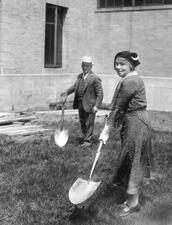
Hadassah in the United States
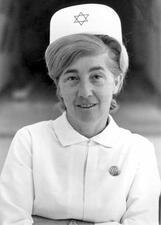
Hadassah School of Nursing: First Graduating Class
Nursing was not recognized as a profession in Israel until 1918, when the American Zionist Medical Unit, which later became the Hadassah Medical Organization, opened a nursing school. The first graduates were the leaders and pioneers of the nursing profession in Israel.

Hadassah: Yishuv to the Present Day
Hadassah, the Women’s Zionist Organization of America (HWZOA) has a lengthy history of activity in the Yishuv and Israel, going back to 1913, about a year after it was founded in New York, and continuing to this day. This activity, outstanding in its scope, continuity, stability, and diversity, encompasses efforts in the sphere of health and medical services and in the welfare of children and youth.
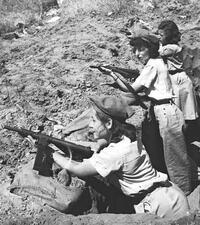
Haganah
Women played many different roles in the operations of the Haganah. Though their stories are frequently excluded from the story of the Jewish paramilitary organization in British Mandate Palestine, women served as caretakers and nurses, as well as fighters and commanders.
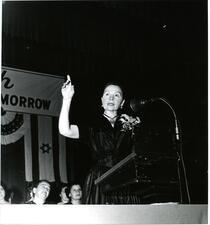
Rose Luria Halprin
Julia Horn Hamburger
A long-time volunteer, Julia Horn Hamburger was founding president of the New York Children’s Welfare League, which offered health and education services to immigrant children, the founding vice president of the Jewish Theater for Children and founding president of Ivriah, the women’s division of the Jewish Education Association. During WWII she shifted her focus to aiding the American Jewish Committee and the Anti-Nazi League.
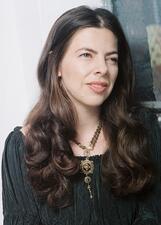
Jill Hammer

Jane Harman
The child of a refugee from Nazi Germany, Jane Harman began her career in law. After being elected in 1992, she spent 20 years as a vocal advocate of Israel, pro-choice legislation, and women’s issues as a Representative for California’s 36th Congressional District. After leaving Congress for the private sector, Harman held leadership positions in several prominent political organizations.
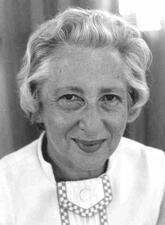
Zena Harman
Zena Harman, diplomat, parliamentarian and social innovator, helped lay the foundation for Israel's advanced network of social services, became one of Israel's foremost diplomats in Israel's formative years, and helped to establish a series of civil society organizations concerned with protecting children's rights, empowering women, and promoting greater civic engagement in public life in Israel.
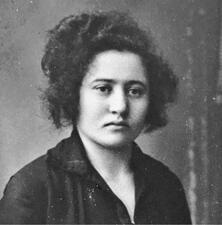
Ray Harmel
Ray Harmel was a powerful force in the trade union movement in Apartheid South Africa, a committed Communist, an anti-Apartheid activist, and ultimately a member of the African National Congress.
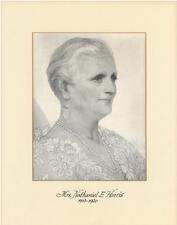
Janet Harris
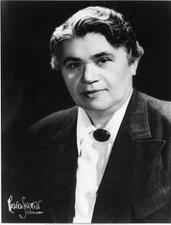
Pearl Hart
Pearl M. Hart was a pioneering attorney, activist, and educator. She devoted her life to defending the legal rights of the vulnerable and oppressed, especially women, children, immigrants, and gay men and lesbians. Her work in Chicago was instrumental in the development of the LGBTQ community there in the middle of the twentieth century.
Reina Hartmann
Reina Goldstein Hartmann focused her career on improving the lives of Jewish women in her native Chicago, serving as the leader of the Mothers Aid of the Chicago Lying-In Hospital and Dispensary as well as other organizations.
Marion Hartog
Marion Hartog and her sister Celia published influential poetry and books on Jewish themes, including works that were among the first fictions ever published by Jewish women anywhere in the world. Hartog later created and edited the first Jewish women’s periodical in history, The Jewish Sabbath Journal.
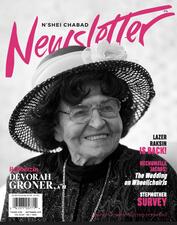
Hasidic Women in the United States
Hasidism
Sylvia Hassenfeld
![Hauser, Rita - still image [media] Hauser, Rita - still image [media]](/sites/default/files/styles/gallery_item/public/mediaobjects/Hauser-Rita.jpg?itok=5eVnMOLV)
Rita Eleanor Hauser
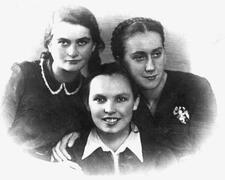
Bela Ya’ari Hazan
On the outbreak of World War II, Bela Hazan escaped her hometown of Rozyszcze, Poland, for Vilna, where she worked as a smuggler for the Dror movement. She was arrested by the Gestapo in 1942 and sent to Auschwitz, where she served as a nurse, then to Ravensbruck, and finally to Leipzig, from which she was liberated. She immigrated to Israel, where she died in 2004.
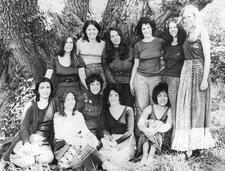
Health Activism, American Feminist
American women have been the “perennial health care reformers.” Women’s health activism has often coincided with other social reform movements. Since the late 1960s, Jewish women have helped create and sustain the women’s health movement through decades of substantial social, political, medical, and technological change.

Hebrew Drama: Representation of Women
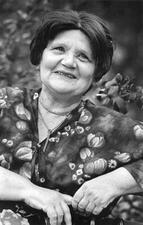
Hebrew Song, 1880-2020
Hebrew song as a whole, including songs of Erez Israel and the State of Israel, is a unique socio-cultural phenomenon that has developed over time. The dawning of Hebrew song can be traced to the period between 1880 and 1903, and it has grown to reflect the diverse aspects of Israeli society since then. The contribution of women to Hebrew songs, in general, has risen steadily over the years.
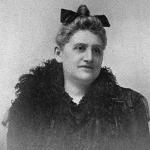
Lina Frank Hecht
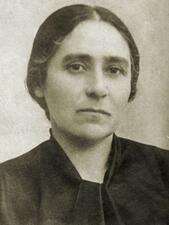
Anna Braude Heller
A brilliant pediatrician used to working in difficult circumstances, Anna Braude Heller struggled to keep children’s hospitals open through both World War I and World War II, even as the Nazis occupied Poland and placed Jews in ghettos. Although she evaded deportation in 1943, she was killed shortly afterwards when German soldiers raided the Warsaw Ghetto.
Florence Heller
An important benefactress of Brandeis University, Florence Grunsfeld Heller made her mark as one of the first women to run a general Jewish organization, the Jewish Welfare Board. She also founded the Florence Heller Graduate School for Advanced Studies in Social Welfare at Brandeis in 1959.


